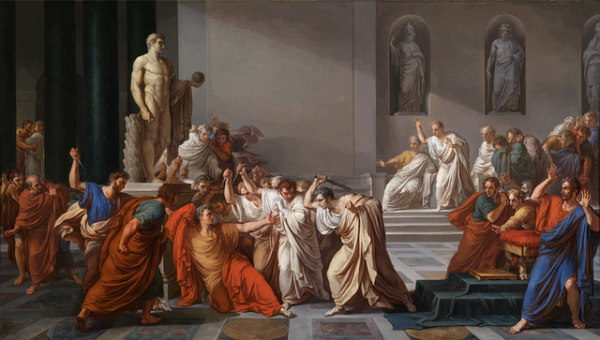“THE MORE, THE MERRIER” – by Des Kelly

I had no inkling about this, had not even heard this strange word “Veblen”, until this true story came to me via my ex-Naval friend Christopher Lawton OAM, who haa recently supplied us at e’Lanka, with some very interesting tidbits about famous people, who did strange things to actually benefit ordinary folk like us, in the long run. This story,believe it or not, is about Caesar, yes, Julius, who, having not much else to do, founded THE VEBLEN EFFECT.
Actually, it does not AFFECT the less AFFLUENT, but since we have not read too much about Julius recently, let us remedy the situation, forget about Cleopatra for the moment, and concentrate on the Founder of the VEBLEN EFFECT. Luckily, it is still in force, and perhaps one of your close friends may still have some use for it. Enough said.

Desmond Kelly.
(Editor-in-Chief) e’Lanka.
OLD MARKETING STRATEGY STILL EFFECTIVE TODAY ! – *THE VEBLEN EFFECT*
At 23, Julius Caesar was a junior politician on the way up – and he had substantial advantages: Confidence and Brains!
While sailing across the Aegean Sea, he was captured by Sicilian pirates. They demanded a ransom: 20 talents of silver. That is about 620 Kg, worth about $600,000 today.
Caesar told them they were being ridiculous. He couldn’t possibly allow himself to be ransomed so cheaply. The pirates hesitated; they were confused. Caesar insisted the ransom must be raised to 50 talents of silver –around 1,550 Kg, worth about $1.5 million.
Now the pirates had no idea what to make of this. Normally, their captives tried to escape as cheaply as possible. They didn’t understand what was going on. But, if he said he would double the ransom, why argue?
They let Caesar’s men go back to Rome to raise the money. And in Rome, in his absence, Caesar suddenly became very famous and well known. No one had ever been ransomed for such an enormous sum ever before.
People assumed he must be someone very special; he must be incredibly important. Thus did the demand for such an enormous amount of silver for ransom put Caesar on the political map and made him famous.
He had just invented _*’The Veblen Effect’*_. Although Thorstein Veblen wouldn’t give it that name for another 2,000 years !
Interestingly, the Veblen Effect is an illusory psychological strategy that has been in use for generations – for thousands of years. It describes the phenomena wherein consumers perceive higher-priced goods to have greater value and be much better than they actually are … _*simply because they cost more*_!
Ironically, despite all the knowledge, technological advancement as well as awareness and detailed understanding of it, the Veblen Effect continues to persist.
There are many examples … Rolex, Cartier, Bentley, Rolls-Royce, Aston Martin, Louis Vuitton, Christian Louboutin, Harrods, Cristal Champagne, etc.
These products may not be any better – functionally – than their cheaper alternatives, but their high prices alone make them _seem_ better, more valuable and therefore much more desirable.
Caesar effectively made himself a Veblen brand. He placed a much higher value on himself than anyone in Rome. But, as far as anyone in Rome knew, it wasn’t he who had done it; It was an _independent valuation_. Which made it credible and authentic. And because Caesar was now so highly valued, his men had little trouble raising the ransom. They returned to the island and freed him.
But Caesar wasn’t going to allow the pirates to keep that sort of money at all. As important and famous a man as he had become, it was easy to raise a huge force which he used to hunt down the pirates and take back all the money, plus everything else they had pillaged, and then execute all of them.
Thus, Caesar became both very rich and very famous.
In time, with that same combination of confidence and intelligence, he became the ruler of all Rome. And he presided over the golden age of the Roman Empire.
Expanding it from Spain to Germany, from Britain to the Middle East. Because Caesar understood that reality begins in the mind.
So, the most important piece of real estate in which to stake a claim is the human mind.
How you stake a claim in the mind is by creating a perception. And how you create that perception is by controlling the context.
Control the context and you control the mind.
Control the mind and you control reality.
A very good example of ‘The Veblen Effect’ is Johnnie Walker Double Black Scotch whisky!
The _basic_ JW Black is labelled as being at least 12 years old scotch. But JW Double Black has no age statement!
Nonetheless, JW Double Black is sold at a higher price than basic JW Black based on the perceived notion that ‘double black’ must be much better than just ‘black’, and that is reinforced by Double Black being much costlier than Black! That is how the human mind works.
In reality, no one knows what is so special about Double Black, except that the label claims it to be very smooth; Without actually saying it is _smoother_ than Black!
Many believe that this is simply a marketing strategy to pass off un-aged scotch at a much higher price, through the Veblen Effect!
And that is how the Veblen Effect, when properly implemented, becomes a highly successful and profitable marketing strategy … to separate consumers from their hard-earned money while simultaneously leaving them feeling good about it – and continually coming back for more!







